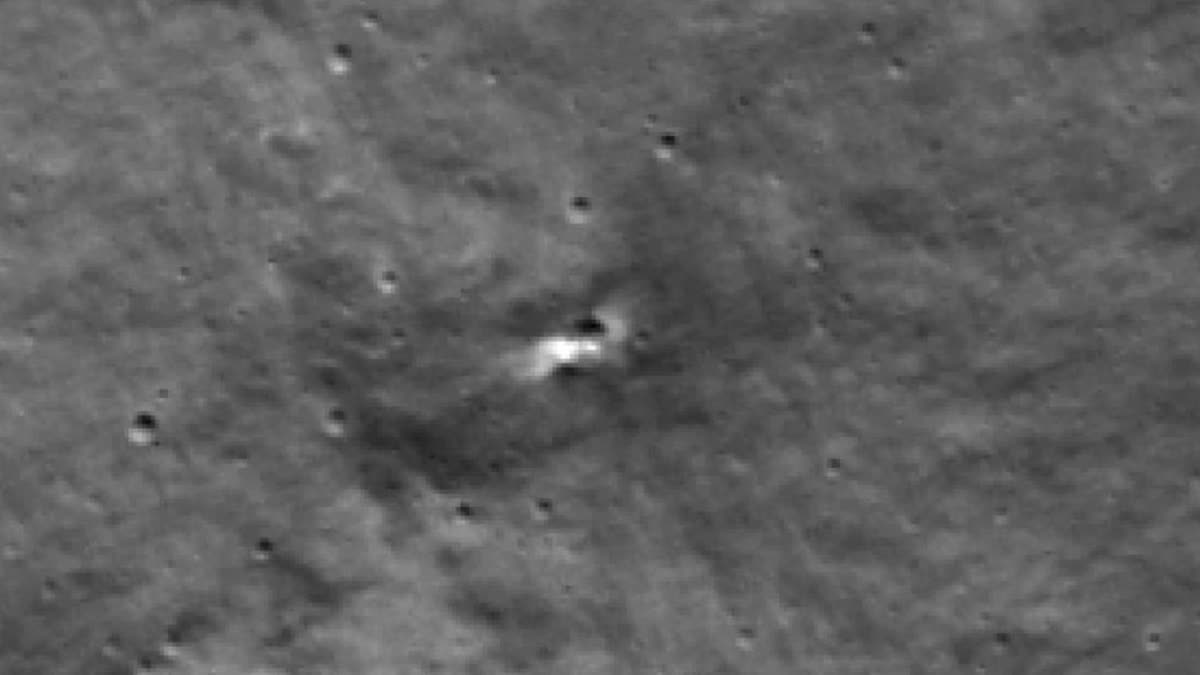Hyderabad: The Luna 25 mission carried the weight of decades of Russian lunar legacy. After the Luna 24 mission in 1976, Russia's Moon exploration efforts stagnated due to economic and political turmoil. Luna 25 aimed to revive this legacy, collecting lunar regolith samples and conducting scientific investigations. The mission spacecraft was lifted off on August 10, 2023, and initially appeared on track after successfully entering lunar orbit.
However, a series of technical glitches, including communication disruptions and landing system malfunctions, ultimately forced the mission's termination in September. The mission that aimed to study the composition of the lunar polar regolith (surface material) and the plasma and dust components of the lunar polar exosphere - was scheduled to attempt a soft landing on the Moon on August 21, ahead of India's Chandrayaan 3-moon mission.
However, on August 21, a preliminary analysis of the lunar mission suggested that a deviation between the actual and calculated parameters of the propulsion manoeuvre led to the spacecraft transitioning into an unintended orbit, resulting in its collision with the lunar surface and subsequent loss.
The cancellation of Luna 25 sent shockwaves through the Russian space community and ignited debate about the future of the country's space program. Supporters of the mission emphasized its scientific significance and the importance of regaining Russia's footing in lunar exploration. Critics, however, pointed to the mission's high cost and questioned the effectiveness of Russia's space program management.
Challenges and Consequences- The failure of Luna 25 exposes several challenges facing the Russian space program. Budget constraints, ageing infrastructure, and a lack of skilled personnel have hampered its ability to compete with international spacefaring nations. The loss of Luna 25 also carries financial ramifications, with estimates suggesting billions of rubles were invested in the mission. The failure of Luna 25 casts a long shadow over Russia's future lunar ambitions.
International Collaboration: A Glimmer of Hope?- Despite the challenges, Russia's long history and expertise in space exploration cannot be disregarded. The country possesses a skilled workforce, a robust launch infrastructure, and a proven track record of innovation. Russia could consider international collaboration to overcome its current difficulties and regain its lunar foothold. Partnering with other space agencies, such as ESA or JAXA, could provide access to advanced technology, expertise, and financial resources.
Reaction of Experts- Russia’s lunar mission Luna-25 failed due to poor software and electronics, said Nilesh Desai, the director of Space Applications Centre (SAC), Ahmedabad, a lead centre of the Indian Space Research Organisation (ISRO).
Addressing the 62nd Foundation Day of the Indian Institute of Tropical Meteorology (IITM) in Pune, Desai also talked about upcoming lunar missions of the ISRO, which is aiming to carry a 350 kg explorer. The Russian spacecraft was scheduled to reach the Moon a few days ahead of Chandrayaan-3. “Suddenly, Russia announced its decision to land on the South Pole and we thought we were destined to come second as Russia had access to better technology and machinery,” he said.
“They (Russia) started (the mission) on August 10; it was a very smooth launch; everything went on perfectly. Then, on August 19, they suddenly announced their computer developed some anomaly, so they could not control the engine, but they were working on that and trying to solve it. Then on August 20, the news came that (Luna-25) crash-landed on the Moon’s surface,” he said.
Looking Ahead: A Lunar Landscape Uncharted- As 2023 draws to a close, the story of Russia's lunar aspirations remains unfinished. The cancellation of Luna 25 represents a significant setback, but it also serves as a stark reminder of the challenges and uncertainties inherent in space exploration. However, one thing is clear: the moon continues to beckon, holding the potential for scientific discovery and technological advancement. Whether Russia chooses to embark on this journey alone or in collaboration with others, its next steps on the lunar landscape will be closely watched by the world.
The story of Luna 25 is not just about a failed mission; it is a narrative of ambition, setbacks, and the enduring human desire to explore the unknown. As we look to the future, we must remember that the path to space is rarely smooth, but the rewards for those who persevere can be extraordinary. The echoes of Luna 25 may resonate for years to come, but one thing is certain: the quest to unlock the secrets of the moon will continue, fueled by the unyielding spirit of human curiosity.
Read More
- Explained: Why Luna-25 lander crash landed on Moon's south pole after racing ahead of Chandrayaan-3
- NASA spacecraft spots Moon crater likely caused by Russia's Luna 25
- Year-ender 2023: Rise and rise of AI; what future holds for us
- Year-ender 2023: ODI World Cup: A heartbreaking climax to fairytale run for Men in Blue
- Year-ender 2023: BJP's 3-2 scoreline amps up Mission 2024 prospects
- Year-ender 2023: Revisiting year's deadliest triple train tragedy in Odisha’s Balasore
- Year-ender 2023: From Article 370 to same-sex marriage, key judgements Supreme Court delivered
- Year ender 2023 | Israel-Palestine war: Unprecedented human suffering in Gaza as Israel attempts to erase a nation



